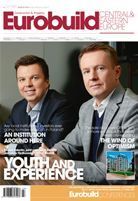The four panel discussions and four presentations held on February 4th at the Hotel Intercontinental in Warsaw took place in front of a full house – as they say, the new always generates interest. Besides, the discussion concerned issues that have significant implications, such as how the way each of us works could change in the near future. This was the topic of the first presentation by Karolina Strokosz (Regus). She argued convincingly that mobile work systems would lower companies’ demand for office space and thus reduce costs considerably. “Maintaining one desk in Western Europe costs an average of EUR 19,000 per year, but over 55 pct of desks are empty most of the time,” said Karolina Strokosz. She also pointed to the results of surveys, according to which as many as 66 pct of us would agree to the lowering of our salaries in exchange for more flexible working hours and, as a result, would no longer need to get stuck in traffic jams on the way to the office. So what is th




























































